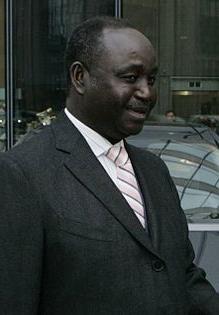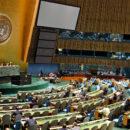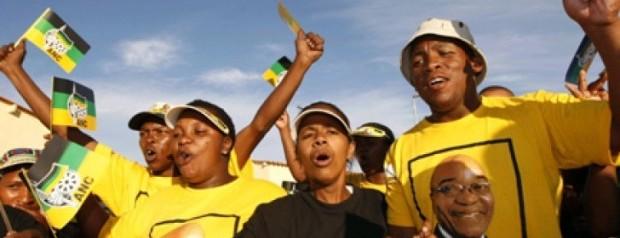Central African Republic: The collapse of the Bozize regime – By Franí§ois Misser

One month after launching a blitz offensive which brought them close to the capital, the Seleka rebel coalition has forced President Franí§ois Bozize to share power. The challenge for the new government of national unity is to stabilize the country.
Larger than France, the Central African Republic is a paragon of the “˜fragile state’. Some political scientists, such as the former ambassador of the CAR in Brussels, go further than that and even call it a “hollow state”. Indeed, since the March 2003 coup that overthrew his elected predecessor, Ange-Félix Patassé, Gen. Franí§ois Bozize and his regime have been completely unable to restore the authority of the state over the largest part of the territory. With the assistance of a battalion of French troops, the Forces Armées Centrafricaines (FACA) had effective control of an area of 100 km around Bangui. The rest is in the hands of the so-called “coupeurs de route” (road bandits). In such conditions, it is not surprising that in 2010 the Bangui government had to call the Ugandan People Defence Force (UPDF) to clamp down on the Lord Resistance Army (LRA), which were using the Eastern part of the country (along the borders of the Democratic Republic of Congo and Sudan) as a sanctuary.
One of the reasons for the instability has been the failure by Bozize’s government to carry out the demobilization of some 10,000 rebels or ex-soldiers from various groups, despite the existence a peace agreement signed in 2008. In addition, the national consensus has been eroded by the state’s inability to provide regular pay for its civil servants. Some of them are claiming salary arrears exceeding one year, and last December, primary teachers in Bangui went on strike. A couple of decades ago, the French government still used to write a cheque on a regular base to help the CAR government cope with its obligations, but this is no longer the case.
The rigged presidential election of January 2011, and the death in a Douala hospital of former President Patassé, increased frustrations in large segments of the population in the North of the country. The disappearance in January 2010 of the leader of a rebel group which was operating in the North-Eastern part of the country, colonel Charles Massi, who according to his supporters was tortured to death after he was handed over by Chadian soldiers to the Bangui authorities, also increased their determination to put an end to Gen. Bozize’s regime.
It is against this background that during the second half of 2012 Massi’s Convention des Patriotes pour la Justice et la Paix (CPJP) formed the “seleka” coalition with other groups. Seleka, which means “alliance” in the CAR’s national language, sango, also included fighters from the Convention Patriotique pour le Salut du Kodro (CPSK), the Union des Forces Démocratiques pour le Rassemblement (UDFR) – which had signed the 2008 peace agreement – and the Front Démocratique du People Centrafricain (FDCP), all from the North. The coalition launched its offensive on 10 December and shortly before Christmas occupied several cities in the centre of the country, including the diamond areas around Bria and arrived at Sibut, only 160 km to the North of Bangui. The FACA, who were put under the command of the President’s own son, were unable to stop them.
It was only the quick deployment of 400 Chadian troops at Damara, 70 km to the North of Bangui, following a summit of the Economic Community of Central African States (ECCAS) on the 21 December, which decided to reinforce the regional peacekeeping mission MICOPAX, that the rebel offensive was halted. In the following days, Cameroon, Congo-Brazzaville and Gabon sent 120 additional troops each, while the French nearly doubled the number of their troops to 600. It has been under this protection that President Bozize held a meeting with the African Union chairman, President Thomas Boni Yayi of Benin, on the 30 December, during which he offered to form a government of national unity.
Meanwhile, the regional leaders urged all parties to participate in a tripartite round of negotiations between the CAR government, the Seleka rebels and the opposition in Libreville. Negotiations started on the 9 January, under the auspices of the mediator, President Denis Sassou Nguesso of Congo-Brazzaville. Two days later, a ceasefire and a power sharing deal were declared.
For all parties, there was no choice but to make concessions. The rebels, who were initially calling for Bozize’s resignation, and even for his trial in front of he International Criminal Court, agreed that he could remain in place until the expiration of his mandate in January 2016. They also agreed to pull out from the towns they had taken since the 10 December 2012. But Seleka lieutenant Florian Ndjadder called for the immediate repatriation of 200 South African troops sent by President Jacob Zuma of South Africa to Bozize’s rescue at the beginning of January.
President Bozize agreed to appoint a Prime Minister from the opposition as head of a government of national unity whom he cannot fire before the end of a twelve months period of transition to free and fair elections. According to the deal, the government will not only include Bozize’s people and the rebels, but also representatives of the political opposition and of the civil society. After the resignation of Bozize’s appointed Prime Minister on the 12 January, Nicolas Tiangaye (a long time opponent) was unanimously chosen by the opposition. However, Tiangaye, a famous lawyer in the country – he was the former counsel of the late emperor Jean Bédel Bokassa during his trial in 1986 and 1987 (and later became President of the Central African Human Rights League) – may have a difficult time running this government.
Indeed, despite the presence of regional and French troops, the question now is whether the ceasefire and the political agreement will hold – the atmosphere in Bangui remains tense. When Bozize left for Libreville on the 9 January, his party militias were searching the houses in Muslim neighbourhoods and had erected roadblocks to intimidate opponents and alleged supporters of the rebels. Pro-Bozize supporters sang insults on the 10 January during demonstrations against Tiangaye, which may not bode well for the future.
A fundamental problem is that both sides are weak, and that the rebel coalition lacks a real political program. There are also some quarrels between its members over the leadership of the movement. At the same time, Bozize can only rely on foreigners, such as the French and the troops of the Central African States, to keep the rebels at arms length. His own FACA troops are demoralized and lack discipline. It is much easier to share a few ministerial portfolios than address the issues of decades of statelessness and bad governance.
Franí§ois Misser is a French independent journalist and author of several books on Central Africa.






